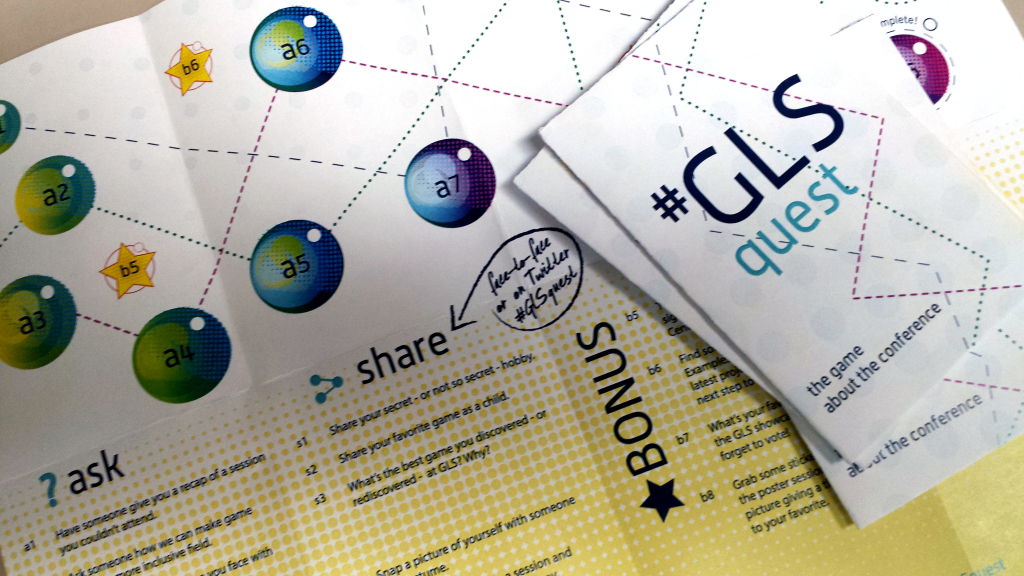The University of Wisconsin at Madison hosted Games, Learning and Society annual conference for researchers, game developers, and industry representatives to share the newest in learning technology. Working Examples, an annual conference collaborator, wanted to impart collaborative values and socialization for a fun and engaging conference experience and I led the development of a casual conference game.



The philosophy of the conference organization aligned with our values at Working Examples, so I began by outlining ideal behaviors that could be encouraged by the game. I led the prioritization of these engagements and the testing of early game prototypes for my team at Working Examples to evaluate. I then worked with colleagues at the GLS Conference Committee to create tasks around specific sessions and to ensure the game fit the tone of the conference, and later in the design process I enlisted feedback from students and faculty from the Entertainment Technology graduate program that hosted the Working Examples project. Since my team didn’t have a comparable conference to fully test the game in advance, we decided to solicit feedback by engaging with folks at the event.
The deliverable was a sort of scavenger hunt; a printed map that allowed hundreds of conference attendees to participate by completing tasks online and in person. The tasks were imbued with collaboration and curiosity and encouraged event attendees to post selfies, share stories, and ask questions in person or on social media. Tasks were worth points and the person who reached 100 first won free registration to GLS 11 the following year.
The conference is known for being very playful, so we asked people to share talents, ask questions, explore new spaces, do silly things, listen to each other, and share experiences face-to-face and on Twitter. Some attendees were able to complete the full complement of tasks and the winner was announced at the closing meeting